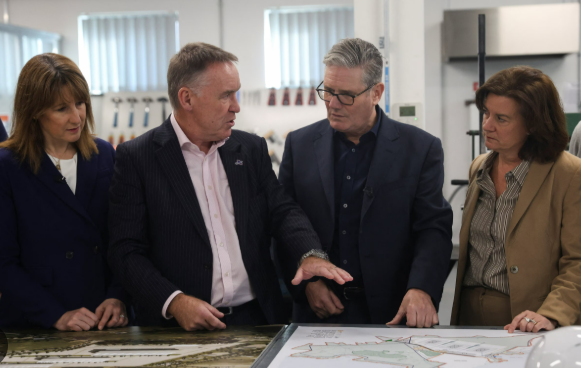UK Review Calls for ‘Radical Reset’ of Nuclear Regulation

Labour government seeks to cut costs and delays
Britain must overhaul the way it regulates nuclear power if it wants to meet climate goals without driving up costs, according to an independent review commissioned by the Labour government. The report concludes that the United Kingdom has effectively become one of the most expensive places in the world to build nuclear plants, blaming overlapping regulators, slow planning decisions and a culture that prizes process over clear outcomes. It sets out 47 recommendations, including creating a single “one-stop shop” body to coordinate approvals, streamlining environmental and safety assessments and setting firmer timelines for key decisions. Ministers hope those changes will speed up projects such as the Sizewell C reactor in eastern England, where the government has already committed around 14 billion pounds in public investment. The document also highlights the need to align nuclear policy more closely with Britain’s broader energy strategy, arguing that predictable rules and faster approvals could unlock private capital and reduce the long-term burden on taxpayers and bill-payers.
Balancing net zero ambitions with affordability and safety
Energy officials have framed the review as a cornerstone of their push for a “golden age of new nuclear,” which they say is vital to keep the lights on as coal and gas plants are retired. The government wants a mix of large stations like Sizewell C and a fleet of smaller, modular reactors that can be built more quickly and deployed closer to industrial clusters that need low-carbon power. Supporters argue that modern nuclear plants can help stabilise a grid increasingly reliant on intermittent wind and solar, while limiting exposure to volatile gas prices. Critics, including some environmental groups and local campaigners, worry that relaxing or simplifying oversight could dilute safety standards and sideline communities that live near proposed sites. The review insists that any reset must uphold rigorous safety, waste management and decommissioning rules, while cutting what it describes as avoidable bureaucracy that adds billions to project costs. How the government implements the recommendations in the next few years will shape whether nuclear actually delivers cheaper, reliable low-carbon electricity by the 2030s or remains mired in delays and cost overruns.












